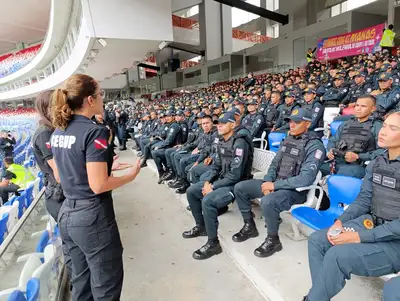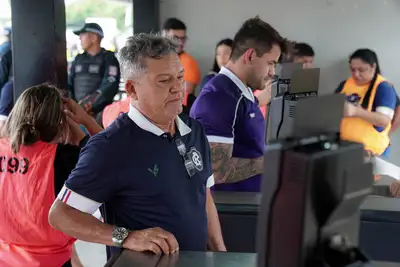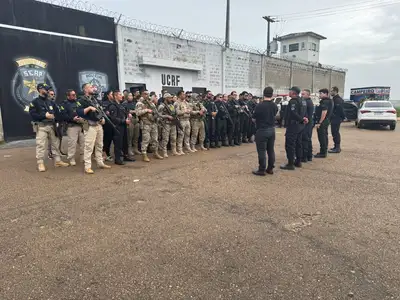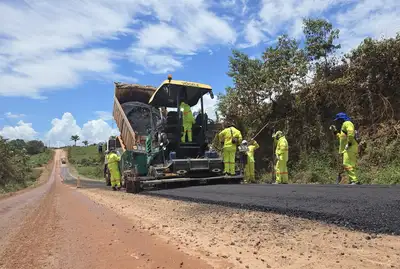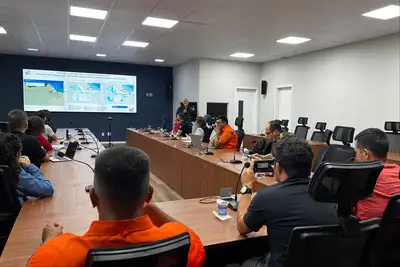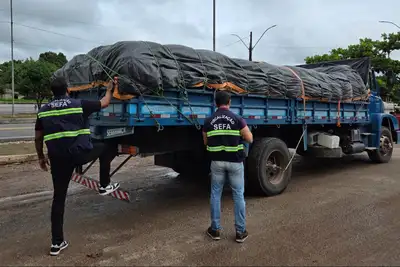In three years, the Antônio Lemos River Base registers nearly 4,000 approaches and 3 tons of drugs seized
Located in Breves, in Marajó, the first river base in Pará has reduced thefts by up to 74% and is already a reference in combating drug trafficking, illegal fishing, and illegal timber trade
The Integrated River Base Antônio Lemos, the first in the State installed in the Marajó region, has completed three years and has already conducted nearly 4,000 approaches to vessels, in addition to seizing over 3 tons of drugs and 15 tons of illegal fish. The numbers also highlight a 74% reduction in robbery crimes and a 30.70% reduction in theft crimes, after the base was established in the region of the Tajapuru River, in the district of Antônio Lemos, municipality of Breves.
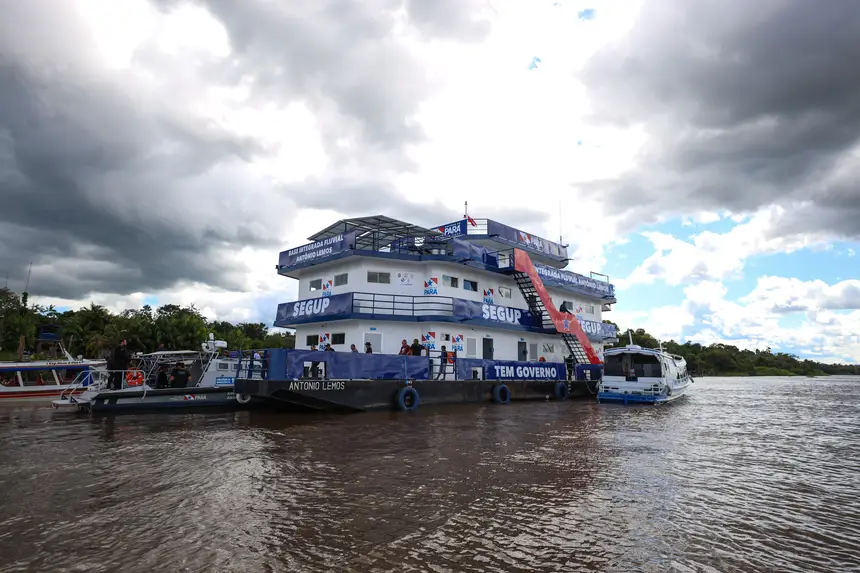
The data was released by the State Secretariat for Public Security and Social Defense (Segup), through the Undersecretariat of Intelligence and Criminal Analysis (Siac) and the River Security Group (GFlu).
Delivered on June 22, 2022, the Base operates in the protection of riverside communities, deterring crime with constant inspections and preventive actions against criminal groups that use the State's river network as a route for crimes, mainly drug trafficking and environmental crimes.

“In three years, we have achieved important victories in security and combating crime in the rivers of the Marajó region, where the first Integrated River Base of Public Security was installed, in the municipality of Breves, addressing the strategic measures we adopted to confront crime, and also regarding the needs of the Marajó population who use the river as their main means of transportation, which attracts criminal groups to the region. With the presence of the Antônio Lemos Base, we are managing to act very strongly against drug trafficking, where we have seized over 3.2 tons of narcotics, in addition to significant seizures of illegal fish and timber. Our teams constantly work to ensure that all vessels navigating the region are approached and inspected, thereby deterring and curbing criminal actions in one of the most strategic locations with an extensive river network in our territory,” emphasizes the State Secretary for Public Security and Social Defense, Ualame Machado.
Productivity - After the establishment of the Base in the region, there was a 30.71% reduction in theft crimes, comparing 2021, when the numbers indicated 140 crime reports, and 2024, with 97 reports. As for robbery crimes, the reduction was even more significant. In 2021, 47 cases were reported, and in 2024, only 12 occurrences, representing a 74% drop in robbery and theft crimes in the river areas of Marajó.
There were also 3,915 approaches to vessels navigating near the Breves strait and adjacent areas. 20 arrest warrants were executed, and 33 arrests were made in the act, along with the seizure of 3,266.15 kg of narcotics. Additionally, 15,325 kg of illegal fish and 3,754 m³ of timber were seized, as well as 13 vehicles and 54 weapons.
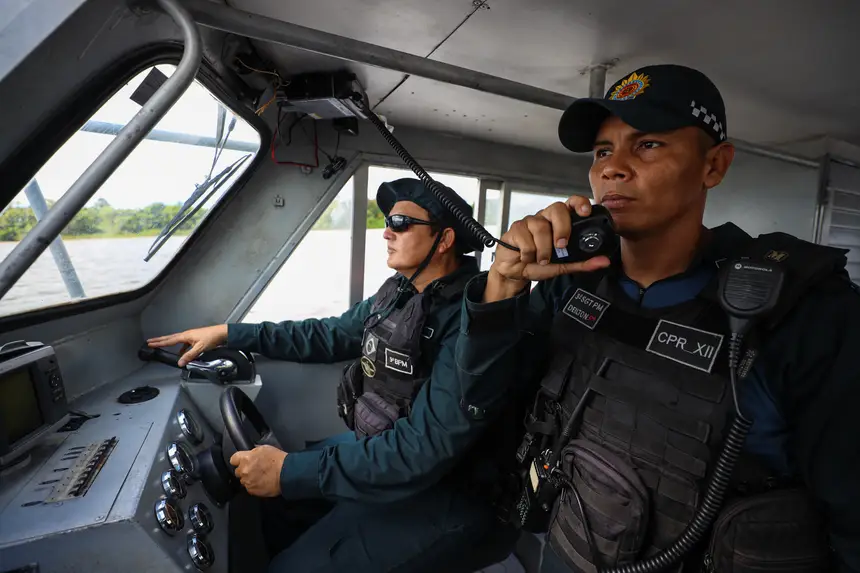
Third base - The Antônio Lemos Base was installed in the Western Marajó region with the aim of increasing inspections in the river network of the area. In three years, the State also delivered the Integrated River Base Candiru, at the Óbidos strait, on the banks of the Amazon River, addressing the demands of the Lower Amazon Integration Region, in western Pará, one of the main river routes used by criminal groups for drug trafficking in the region, which borders the states of Amazonas and Amapá.
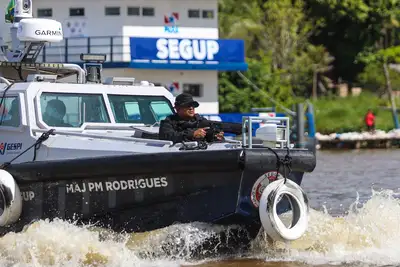
The Government will also deliver, later this year, the Baixo Tocantins Base, which will be installed in the Capim channel, rural area of the municipality of Abaetetuba, near Barcarena, thus covering the main river ports and strategic areas of Pará in combating crime.
“The River Bases play an important role in our security planning, considering the extensive river network of the State, which is frequently used for drug trafficking and other crimes. With them, we are managing to achieve significant drug seizures, as well as intercepting loads of illegal timber and fish, thereby curbing crime, especially ensuring the safety of the riverside communities that are so characteristic of our region, and that deserve the same attention we give to communities in more urban areas,” emphasizes Ualame Machado.



